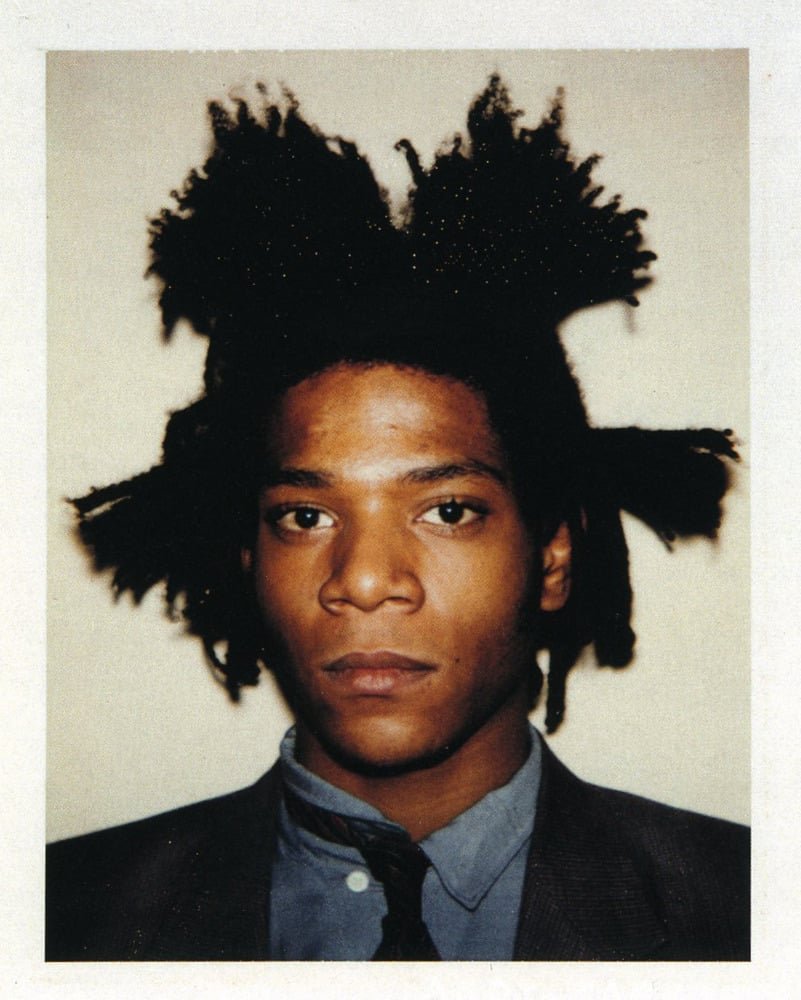You Can Give Up on Art And Come Back Later
/If you’re sick and tired of creating — then stop.
My caricature of artist Jean-michel Basquiat.
If you love something, let it go.
You’ve heard the saying. It doesn’t have to be forever, though especially when it’s a hobby or skill you love dearly.
I’ve been drawing all my life (at least since I was three years old), and it’s a skill I’ve worked hard to develop. Unfortunately, I still feel I’m not good enough compared to other talented artists I see online.
I feel like giving up.
I’m forty-seven, and everything I’ve worked hard for in art hasn’t gone as far as I thougth it would career wise. Making comics, drawing a comic strip syndicated online for seven years, and even freelance illustrating have only taken me so far.
I know I should stop, but I can’t.
When you love something and see it as a part of yourself, it’s hard to let it go.
Actually, that’s not totally true. I’ve met people who were smart enough to try making art or cartooning a career and then let it go after years of letdowns. They moved into something else more profitable and never looked back.
Being one of those people is so hard for me. Is it because I’m stupid?
I want to think it’s because I still enjoy making art. The consistent work you have to put in practicing techniques feels good when you see yourself improve.
The whole “Journey is more enjoyable than the destination” thing should be what we focus on more than money.
But what if you don’t care about creating your art anymore?
Stop making art and see if you can live without it.
Giving up feels good. Making your passion less important in your life can relieve creative stress and expectations. There’s beauty in letting it all go.
If, after a few months, or maybe even years, you feel the pull to create again, maybe your love of the art is more a part of you than you realize.
You can always start it up again and slowly and gently add more time into your schedule for creation.
There might be times in your life when it’s harder to make your art. Like when your are a parent of a young child or you’re adjusting to moving to a new city.
When I lived in Japan for two years, I barely drew anything. I didn’t open up a sketchbook, and I rarely drew any comics. Do you know what I did do, though? I learned to speak Japanese — which takes a lot of time and effort, let me tell you. I dated and met my wife. Spending time with someone special takes effort and dedication. Giving time to explore a new country, culture, and relationship was some of the best times I’ve spent in my life.
And I wasn’t drawing or writing. I was too busy living.
Towards the end of the second year, I started writing the script for my graphic novel, Tales of Tritoria: Youngbloods, and it was refreshing to spend some of my time in creation mode.
I didn’t start drawing pages and going all in on the production of the book until I moved back to the states. Yeah, it took me a few months to get back into the swing and stamina of drawing comics again, but the time away was worth it.
I felt refreshed and excited to produce comics again. All I needed was a break.
If you decide to take a break, you might come back at just the right time.
“What if I give up, and then my type of art becomes popular? I’ll miss opportunities?”
I doubt that.
Number one, you will have work you’ve done in the past you can pull out and sell or share. Number two, timing is something you can’t predict. The right time period in your life, combined with trends in the market, could be in your favor.
You never know. That’s why focusing on doing something you enjoy is the key.
The International Society of Caricature Artists (ISCA) holds a challenge in January called Caricature Resolution with a list of names of famous people each day you can choose to draw from.
Today’s person, for example, is 1980s Neo-expressionism artist Jean-Michel Basquiat.
It took me several tries to get closer to his likeness. At first, I tried different head shapes and placement of the eyes and mouth. You get the sense of him, but in my opinion, they didn’t have his likeness.
A lot of times with caricatures, you have to try different combinations until you get it right.
THe real basquiat for comparison.
I’m still working on getting better at drawing the likeness of celebrities, and it’s even harder than you might think. I’ve studied books, my favorite being Tom Richmond’s The Mad Art of Caricature, and watched several videos on YouTube to brush up on my skills.
Twenty years ago, I lived in Orlando, FL, and worked as a caricature artist for a small company set up in hotels and special events. All of this while starting to teach elementary school Art during the week.
I was just okay at it. You have to move fast and draw people in three to five minutes, then, I used watercolor to finish them off, and it was truly a challenge.
Sometimes people like how you draw them, and sometimes they don’t.
You grow a thick skin, but mine didn’t thicken up enough. I got tired of the demands of live caricatures and gave up after two years.
I wish I had continued. My drawing skills would have grown so fast, and who knows where it might have taken me. I never worked in Disney or Universal Studios theme parks, but that would have been the ultimate challenge.
My eyes were on making comics and publishing. Funny enough, most of the freelance work I get now comes from caricature illustration.
I’m looking to do more practice work in 2023 for art that generates more income for me.
Caricature is that art form. Why fight it?
I’ll keep practicing regularly.
Take a break for as long as you like, and art will be there waiting for you to return.
Don’t say you’ll give up forever.
Making a living solely from art is extremely difficult. If you tried it and you got burnt out, take a break. Try art directing or going into a completely different field. You can always create art in your free time when you want to get back into it.
There may come a time in life when opportunities open up again for you to get paid, and you can jump back in with both feet.
There’s nothing wrong with seeing your art as a life long pursuit. You can create until you die, so why rush things?
I’m doing everything possible to keep the caricature practice light and fun. Improving is definitely a goal, but I don’t have to be pro level anytime soon.
The real actor grace kelly.
the real malcolm x.
Who knows, in time, I might try getting back into live caricatures again. The thought of drawing people in person with everyone watching seems scary as hell right now. But I’ll go with the thought.
At some point in the future, it might be nice to have this skill to have fun and make money when I can.
If you’re tired and run down from not getting where you’d like with your art, take a break and give yourself time to see it in a different light.
Your passion will be waiting with open arms when you’re ready to return.
If you like my artistic outlook on life, consider subscribing to my newsletter, A New Creative Life, by clicking here.

























